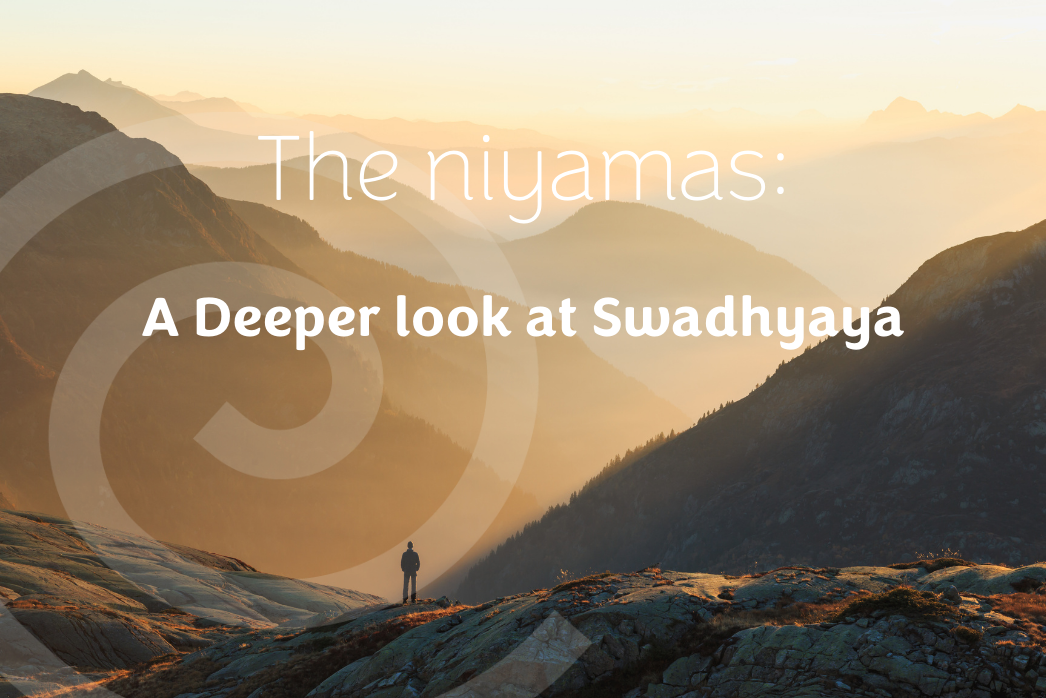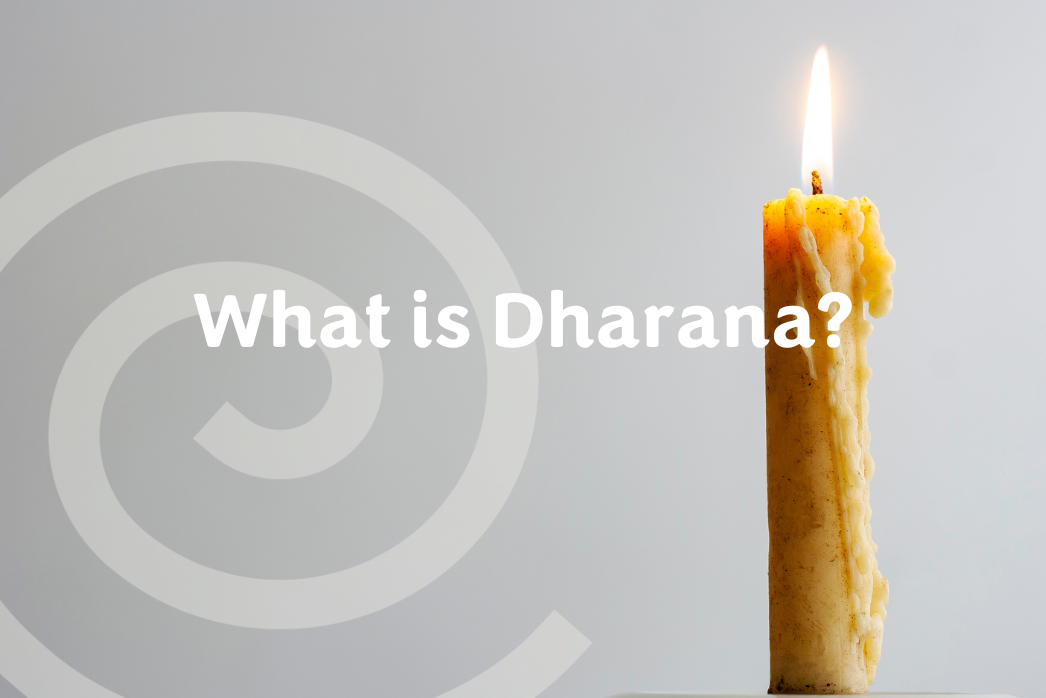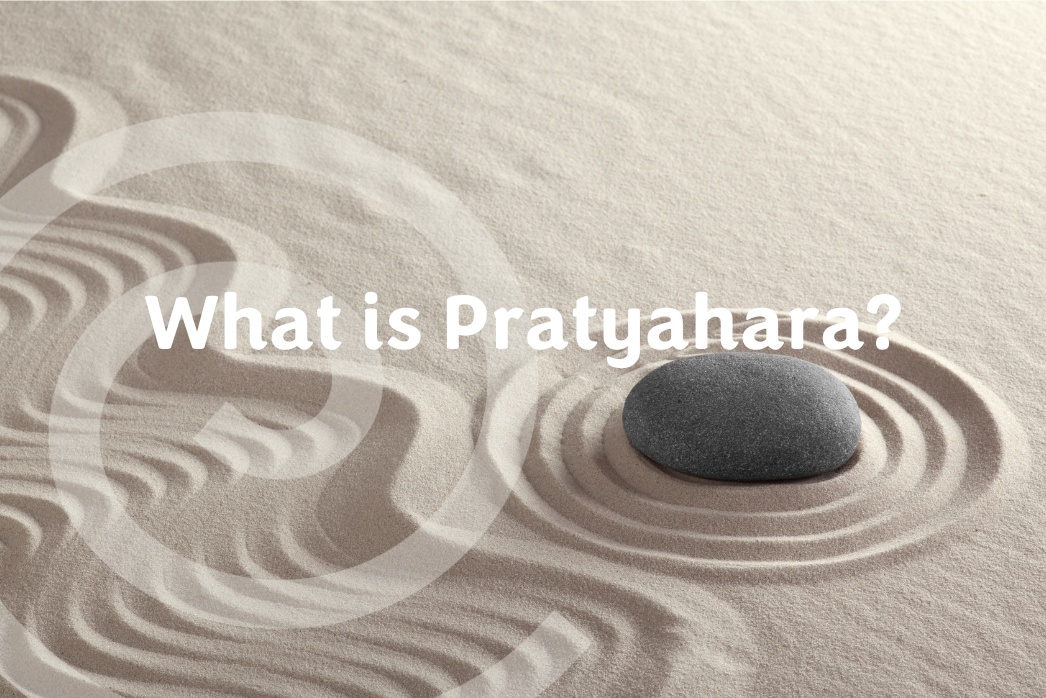The Niyamas: A Deeper Look at Swadhyaya

Swadhyaya (svahd-yah-yah) is our penultimate niyama. It is a beautiful word to wrap your tongue around with ‘swa’ meaning ‘self’ and ‘dhyaya’ meaning contemplating, meditating on or reflecting upon. Together, it can be translated as self-study, self-contemplation or introspection. It’s about, once again, peeling back the layers to find your true Self or the divine within you.
How do we study ourselves? How do we go deeper within? How do we contemplate and reflect?
The answers to these questions are endless. As always, it depends on the individual and what they most need at that time. Below are three ways to deepen your swadhyaya.
- JOURNALING ON YOUR EXPERIENCES
One way to study ourselves would be to use our experiences - these are great teachers. If we sit and take time to reflect and unpack our experiences through journaling we start to understand ourselves better. We learn who we are through the actions we have taken. We learn what we value and what we don’t. We get closer to understanding our true selves rather than the version of ourselves that we have conjured up in our minds or the version of ourselves we have been presenting to the world. Perhaps upon reflection we aren’t proud of some of what we learn and that’s okay too. We don’t berate ourselves, rather we offer ourselves love and acceptance. We take solace in knowing that now we know better, we do better. We can start to align ourselves so that our thoughts, words and actions are one. We can put our learning into practice - taking action and transforming. In this way we realise that our sense of self and sense of happiness truly does come from within.
Try exploring the following questions to get you started:
- What do you appreciate most about your personality? What aspects do you find harder to accept?
- Explore an opinion or two that you held in the past but have since questioned or changed. What led you to change that opinion?
- What values do you consider most important in life? How do your actions align with those values?
- What three changes can you make to live according to your personal values?
- MEDITATE
Being in meditation is another way to go deeper within. Now I know meditation is something many of us grapple with and there will be an in depth blog post dedicated to meditation in a few months. In the meantime it’s important to understand that meditation is about being aware of what your mind is doing. It is not about having an empty mind. So if you sit down to meditate and spend the whole time thinking with your mind racing from one thought to the next that is completely normal. Stay with it. Try to follow these thoughts without getting completely lost in them. Remind yourself that this takes time and dedication. There will be days it feels easier and days it feels difficult. Ride the wave. Eventually you will have moments of clarity and moments of space. It’s in these moments that we see our True selves or the divine within us. You can meditate for free with me here.
- STUDYING THE SCRIPTURES
The Yamas and Niyamas we have been exploring come from Patanjali’s Yoga Sutras - one of the great yogic texts. There are many different yogic texts you can study to deepen your knowledge of yourself. Whilst this can seem daunting, it is an integral part of swadhyaya and of developing a well-rounded yoga practice. Many of the texts can be difficult to understand on your own so we can seek an able Guru (teacher) to help us understand and contemplate them further. This can be through watching their videos, reading their commentaries or physically studying with them. You may be wondering how to find such a Guru? There is a saying that goes: ‘when the student is ready, the teacher will appear.’ It is important to find someone who you connect with and trust. It is also important to turn the learning into transformation. To use what you learn and contemplate on to bring about positive change in yourself and therefore the world.
- RECONNECTING WITH YOUR INTUITION
We are innately intuitive beings. When a baby is born they follow their intuition. They follow their wants and needs. They have not been conditioned by their surroundings so are confident in trusting themselves and their desires. As we get older we become aware of others wants and needs, we become conditioned by the societies we live in. Many of us learn to look outside of ourselves for the answers. Many of us start to ignore our inner knowing. Many of us stop trusting our gut. Our dampened or forgotten intuitions are vital in our yoga journey. As you know by now, yoga is an inward journey so trusting ourselves is essential. By reconnecting with our intuition we get to know ourselves on a deeper level.
Try exploring the following questions to get you started:
- How does your intuition feel? Describe it in detail. (Perhaps it’s a quiet voice, a feeling etc)
- When do you trust yourself most? When do you find it harder to have faith in your instincts?
- Write a letter to your intuition
- When do you feel most aligned?
- Ask yourself this about any situation: what is this situation / feeling teaching me?
- How does your body feel at this moment?
As you embark on your swadhyaya journey, remember that the ego is always trying to keep us safe - it's what it is programmed to do. It does not like change so will continue to do the same thing, tell lies to hold you back such as ‘you aren't capable or worthy’ as it tries to keep you 'safe'. But the more we trust our intuition/inner knowing, push ourselves out of our comfort zones and step into the unknown, the more we realise that we are capable and that we are worthy.
With love and gratitude,
Jyoti x
(pronounced Jyo-thee)










Leave a comment